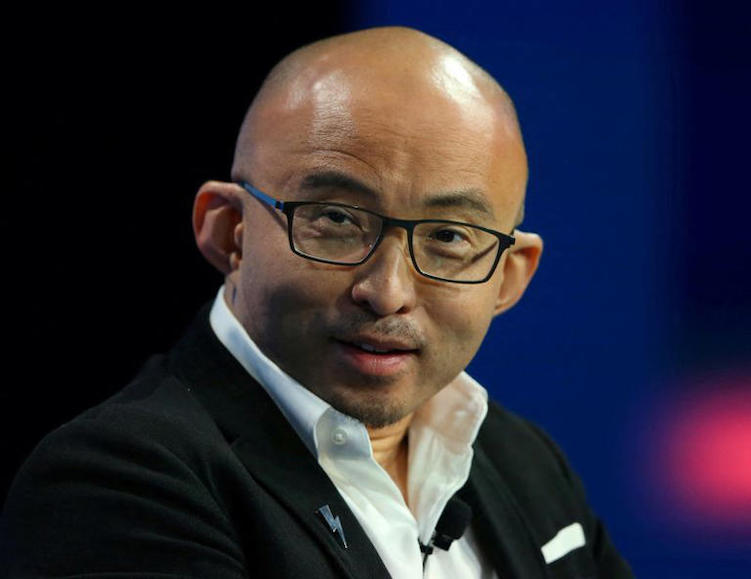The disappearance of a star Chinese dealmaker Bao Fan has left China Renaissance investment bank battling to reassure clients and staff, sources said on Monday.
Shares of China Renaissance Holdings fell by as much as 5% before recouping its loss on Monday but were down a further 0.8% on Tuesday, after a market plunge last week when Bao’s was reported missing.
The dilemma has heightened concerns about “key man risk” for investors.
News that the bank could not contact its founder, chairman and CEO Bao Fan saw its stock plunge to a record low in the previous session.
The reasons for Bao’s disappearance are unclear, but his case follows a series of incidents in which high-profile executives in China have gone missing with little explanation during a sweeping anti-corruption campaign spearheaded by President Xi Jinping.
Some of them reappeared as abruptly as they disappeared.
ALSO SEE:
China’s Offshore Listing Rules Spur Fear on Approval Process
‘Trust the company’
China Renaissance said on Thursday in a stock exchange filing that it had no information that Bao’s “unavailability” was related to its business, and that its operations were continuing normally.
China Renaissance co-founder Kevin Xie and its investment banking head, Wang Lixing, who are running the company in Bao’s absence, have asked staff not to believe or spread rumours, according to two sources and copies of their messages to staff seen by Reuters.
“At such a critical moment, everyone should trust the company. Don’t fret and stumble. It’s OK to encounter some difficulties in the short term,” Wang said in his message posted on the company’s Wechat group on Friday.
According to two sources and some media reports, authorities took Bao away earlier this month to assist in an investigation into a former colleague, Cong Lin, the company’s former president.
All the sources, who have knowledge of the matter, declined to be identified due to its sensitivity.
A spokesperson for Beijing-based China Renaissance declined to comment on specific details and referred to its exchange filing made on Thursday, while Xie and Wang did not immediately respond to requests for comment on Monday.
Beijing’s public security bureau also did not respond to request for comment. Asked during a daily news conference on Friday whether the banker had been detained, Foreign Ministry spokesperson Wang Wenbin said he was not aware of the situation.
The Hong Kong-listed stock, which climbed as much as 3.5% early on Monday, gave up all those gains and fell to as low as HK$6.82. It hit an all-time low of HK$5 on Friday but later recovered some ground to close at HK$7.18, down 28%.
On Tuesday it closed at HK$7.16, down a further 0.42%.
Key man risk
Bao, also China Renaissance’s controlling shareholder, started the firm in 2005 as a two-person team, seeking to match capital-hungry startups with venture capitalist and private equity investors.
It firm later expanded into services including underwriting, sales and trading.
Known to be well connected in the corporate world, Bao was involved with tech mergers including the tie-up of ride-hailing firms Didi and Kuaidi, food delivery giants Meituan and Dianping, and travel platforms Ctrip and Qunar.
“What happened to China Renaissance highlighted the key man risk with some Chinese companies,” Li Nan, professor of Finance at Shanghai Jiaotong University, said.
“A group of Chinese financial institutions rose quickly over the past few years on one to two controllers’ efforts, while it makes these companies particularly vulnerable to any negative headlines that show the controllers are in trouble.”
Key man risk generally refers to the threat posed to a company from over-reliance on a limited number of personnel for decision making.
While it is not uncommon in China for authorities to take away business executives for various reasons, Bao’s disappearance comes against the backdrop of more than two years of sweeping regulatory crackdown on technology companies.
“This should once again remind foreign investors of the relative level of regulatory and governance risk associated with Chinese equities,” said Propitious Research analyst Wium Malan, who publishes on Smartkarma platform.
- Reuters with additional editing by Jim Pollard
ALSO SEE:
Top China Dealmaker Bao Fan Disappears, Bank Stock Plunges
China Seen Allowing Didi Apps Back Online, Amid Regulatory Thaw
Winners and Losers From China’s Sweeping Crackdown on Big Tech
China’s Crackdown on Didi Intensifies With Removal of 25 More Apps
China’s tech crackdown widens as more US-listed companies targeted
























